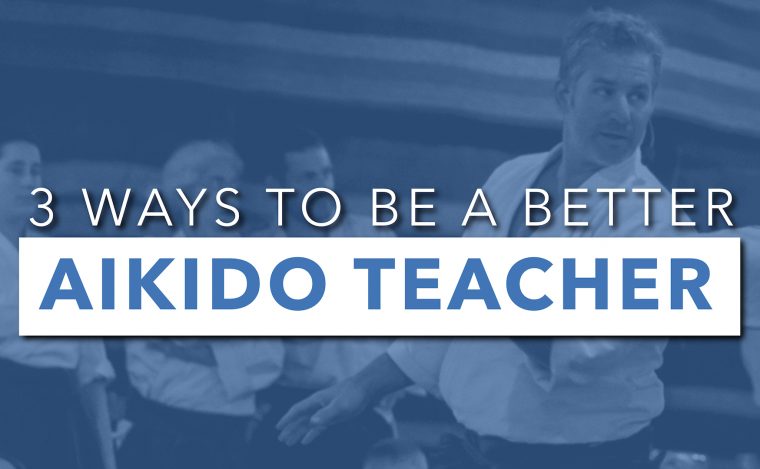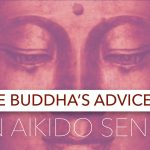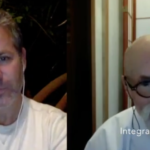In one way or another, we are all teachers, and we are all students. Surely from time to time, you find yourself helping another, or getting another’s help in understanding something new. At the very least it is safe to say that we are all learners. It is in this spirit that I’m sharing my latest post on 3 Ways To Be A Better Aikido Teacher (And Student!).

This video is part 3 of a 4-part Facebook Live series on “Aikido And Teaching” that I made back in January 2018. The 1st video of this series was on the topic of “How To Choose An Aikido Teacher”, and the 2nd video was on “3 Bridging Practices For Aikido.” In this 3rd of 4 talks, I focus on why we need to continue to grow as teachers.
Here’s a summary of the points I covered more deeply in the Facebook Live broadcast.
Why is it important to be the best teacher you can be?
I began by looking at why it’s important to be the best teacher you can be. Here s a summary of points I touch on:
- The responsibility of guiding others
- The responsibility of transmitting the principles of Aikido
- Realizing your fullest potential
- Helping others realize their fullest potential
- Why Aikido needs us to evolve
From here I go into the main topic by elaborating on the following 3 ways to be a better Aikido teacher.
3 Ways To Be A Better Aikido Teacher
Way #1: Waking up
The first way to become a better Aikido teacher is by “waking up.” Waking up is the essential first step in any developmental process. Without it your practice will stagnate, both as a teacher and a student. Simply put, “waking up” triggers development.
Here s a summary of points I touch on:
- Development of trans-personal “states of consciousness”
- Gross, Subtle, Casual, and Non-Dual states
- The dropping away of fear
- “Zen States” of Zanshin, Mushin, Fudo Shin, Mindfulness,
- The principles of connection & intuitive response
- The competency of creative resolutions
Way #2: Growing up
The second way the become a better Aikido teacher (or student) is “Growing Up.” Growing is about maturing as a teacher or student. Even though “waking up” triggers development, alone it isn’t enough. You must move forward by “growing up.” This is where the rubber meets the road because growing up means being responsible for what you have already woken up to.
Here is a summary of points on “growing up”:
- The 2 meanings of growing up
- Being responsible in a “moment of truth”
- Stage development (ego-centric, to ethnocentric, to world-centric, to kosmo-centric)
- Evolution of the self vs. arrested development
Way #3: Showing up
The third way to become a better Aikido teacher (or student) is none other than “Showing Up.” Showing up means to fully inhabit a perspective. To be a living, continuously evolving, and embodied expression of the very perspective you are representing in your teaching.
Here s a summary of points I touch on:
- Perspectives are not given. They must be earned
- The capacity of taking multiple perspectives is a developmental privilege
- Show up is the natural culmination of the 2 previous stages
- You begin to move through the world in a different way
- You begin to have an impact on the world
- This is the training of wisdom
I’ve already said in the previous posts in this series, but I think it’s worth saying again here:
The Last thing the world needs is another Aikido teacher. The last thing that world needs is another Aikido student. What the world needs are men and women who are dedicated to a higher Path of AIKI.
I hope you enjoy this video teaching on “3 Ways To Be A Better Aikido Teacher (And Student!)”
Question: What other way do you see as important for becoming a better Aikido teacher (or student)? Join the conversation and leave your thoughts below!







Please note: I reserve the right to delete comments that are offensive or off-topic.